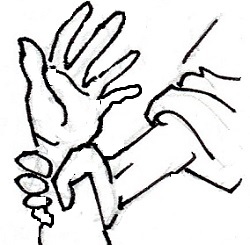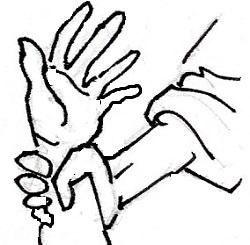

“… there was a tiny whispering sound. When he heard this, Elijah hid his face in his cloak” (1 Kings 19:12-13).
1 Kgs 19:9a, 11-16; Mt 5:27-32
Jesus’ difficult teaching on marital fidelity in the Scriptures tells us something about his understanding of personal intimacy. By pairing today’s reading on marital fidelity with the story of Elijah’s encounter with God on Mount Horeb, the Lectionary shows us why the Bible equated idolatry with adultery. To be consorting with false gods was not just to be in error but also to be denying the covenantal love relationship God had formed with his people.
Elijah experiences the power of God intimately touching his humanity in the tiny whisper of divine presence as the LORD passes by. This unbearable divine touch surpasses the power of the wind, the fire and the earthquake, the three forces of a theophany. Elijah is a true prophet because he survives to bear the divine Word in his very being. Though he is the only remaining true prophet, he is empowered to return to challenge Ahab, Jezebel and the prophets of Baal, for they are leading the nation into adultery.
Jesus goes hyperbolic with his disciples in trying to show them the seriousness of straying from fidelity to God’s love. The border of this temptation to sin is to think about it, to imagine it, to desire it. If we allow anger or lust to enter our minds, we begin to kill another and commit adultery. So, don’t go there. It will be like losing a part of yourself. If your hand, your foot or your eye goes to sin, cut it off, let go of it rather than lose your intimate union with God.
The fierceness of Jesus’ teaching reflects his own intimacy with God. It also becomes the basis for his mercy for the weakness of humanity, knowing that all people wander in thought, desire and self-deception. We can approach God only because God’s enables us by divine forgiveness. Only God’s unconditional love for us can draw us closer and lift us up to mutual love. Jesus is after all preaching to an adulterous generation, a sinful people and those broken by their own temptations and poor choices. He has come to find sinners, to restore the lost sheep. He initiates the love in us that enables us to respond to him.
This is the paradox of the Sermon on the Mount. Jesus offers us a profile of virtue we cannot achieve to overcome a propensity for vice none of us can escape. Therefore, our lives only go forward within the mystery of grace, which elevates us beyond our human capacity for good. In Christ we become new creations, moving freely amid forces that limit us to striving and hoping but never fully achieving the holiness we want. We begin each day asking for help from God and one another and we end each day asking for forgiveness. Something larger and deeper than our individual efforts lifts us up together.
Our personal imperfection protects us from pride and the illusion we can somehow transcend our need for mercy or community. We are in the end saved sinners, repentant failures who succeed because God never stops loving us. This is the joy of the Gospel.
Advertisement








